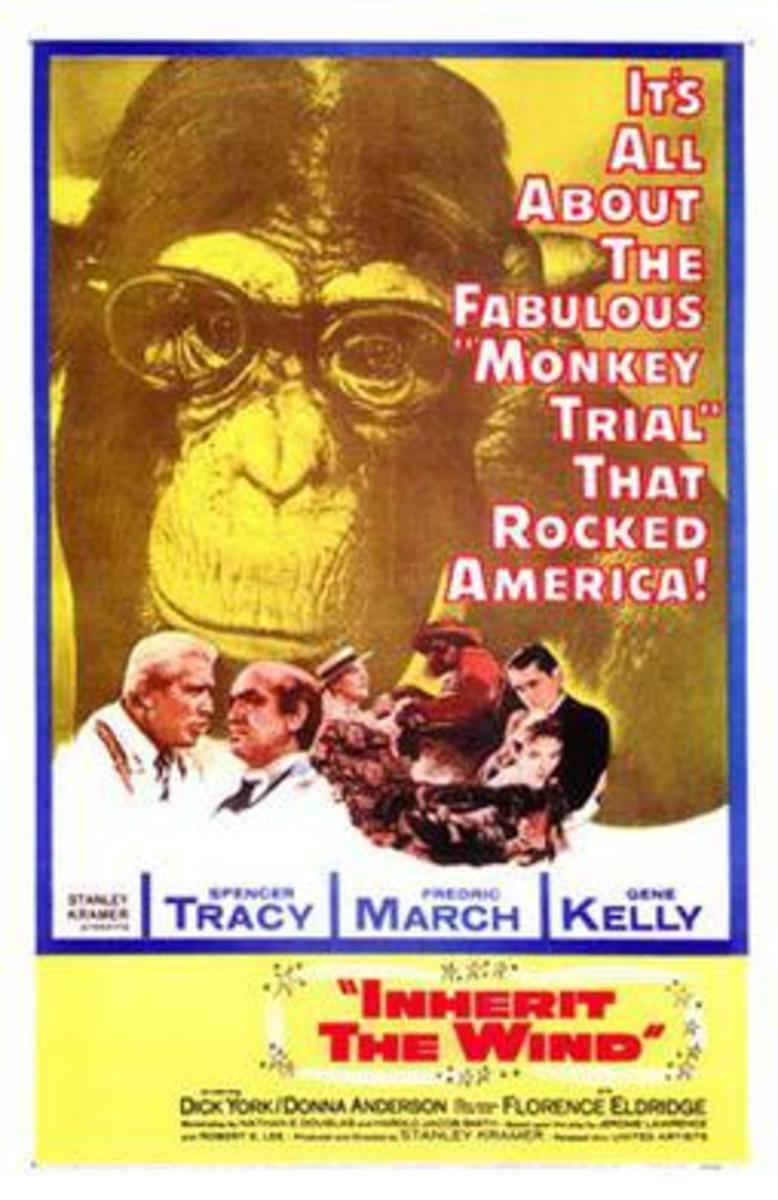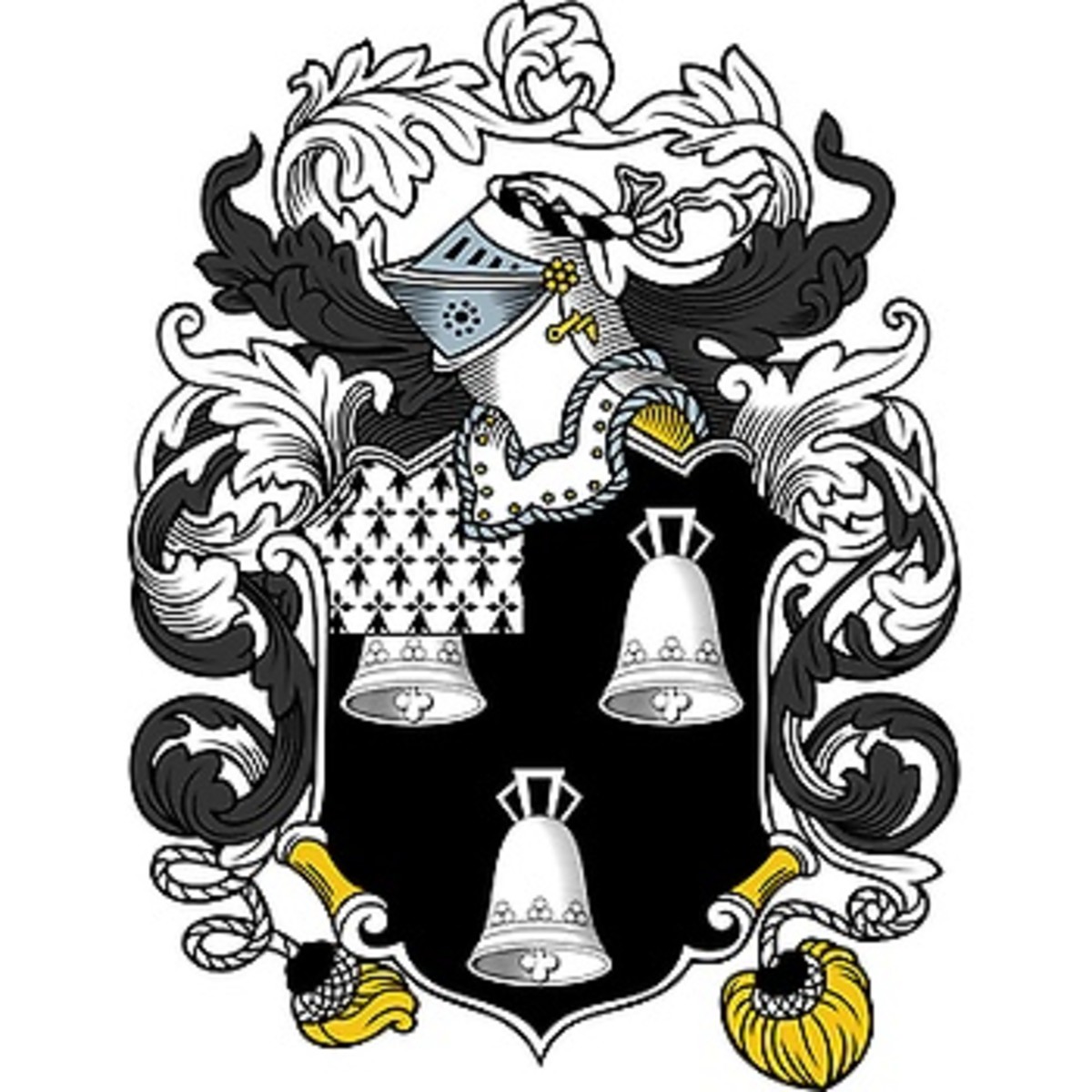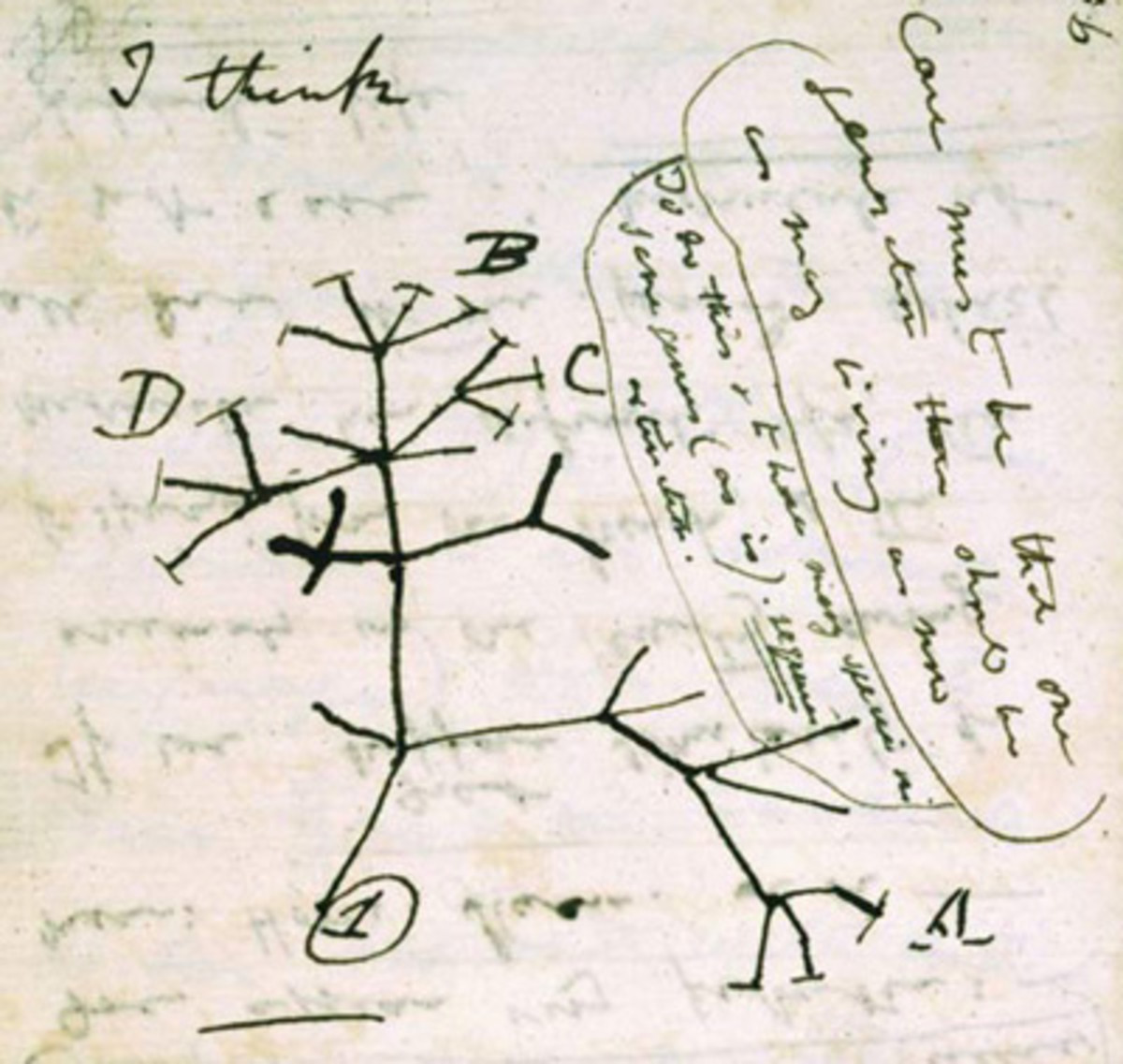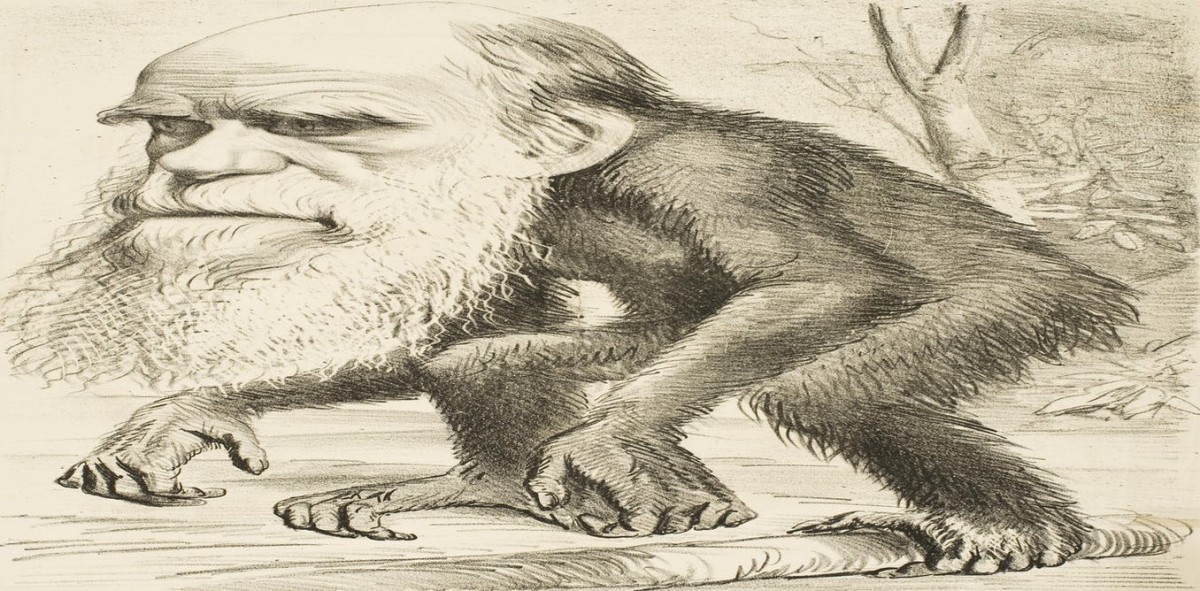A Historical Perspective on the Scopes Monkey Trial
Creationism v.s. evolution - A Historical Perspective
Why We Must Study History – A History Teacher Explains His Reasoning Through a case study on the Scopes Monkey Trial in 1925 – by Michael M. Nakade (An Imaginary Scene: Inside an American History Classroom on the First Day of School)
Mr. Nakade: Welcome to my American History Class. Hope you’ll enjoy going on a journey back in time and learn America’s Past.
Student 1: No offense, but why do we even bother to study our past? It’s over, and I don’t see much value in learning about what happened long time ago. We can’t do anything about events of the past. Besides, history in general is so boring.
Mr. Nakade: It can be boring if the focus is placed on memorization of names, events, and dates. I want to tell you why understanding the past correctly is extremely beneficial today. To do that, I am going to use the Scopes Monkey Trial as our case study. Does anyone know what this trial is about? Yes. I see one hand going up.
Student 2: It’s a trial over the teaching of evolution in high school biology class.
Mr. Nakade: Very good. Do you know when this took place and where?
Student 2: Way back when Darwin’s Theory of Evolution was scaring people. It happened in the South. Those people were backward. It was a nut case.
Mr. Nakade: Okay. You are correct, but let’s not get carried away with our judgment just yet. You said that it was a nut case because some folks in the South were backward and couldn’t handle the Evolution being taught. Right?
Student 2: Yeah, something like that.
Mr. Nakade: Does anyone here remember two big shots involved in this trial? (No hands went up.) Okay. Let me tell you. One was for the prosecution. His name is William Jennings Bryan. He wanted to stand up for his religion. He was adamantly against Darwin’s theory of evolution. The other one was for the defense. His name is Clarence Darrow. He wanted to defend the high school biology teacher who taught evolution in school and got arrested. Darrow thought that the law in Tennessee was ridiculous. At that time, in 1925 in Tennessee, it was illegal for public high school teachers to teach evolution in classroom.
Student 3: Gee, I give this high school teacher a lot of credit. He had some guts. It sounded like he purposely taught evolution to get arrested. He was challenging the system.
Mr. Nakade: Well, in reality, it was a set up. The American Civil Liberty Union (ACLU) was not happy with the law in Tennessee. The ACLU wanted a test case, and Mr. Scopes agreed to be the guinea pig. The business leaders of the town of Dayton, Tennessee wanted free publicity for the town. They got together with the folks from The ACLU and succeeded in having the trial in Dayton. Well, the town of Dayton got far more than they ever bargained for.
Student 4: What do you mean? The publicity was, like, huge or something?
Mr. Nakade: You bet. It created a circus atmosphere. Media came from all over the country. Some European nations even followed the trial. The presence of William Jennings Bryan alone generated so much buzz. Having Darrow as a defense attorney, too, was an amazing thing for this small town.
Student 5: Who are William Jennings Bryan and Clarence Darrow? Why were they such big shots in those days?
Mr. Nakade: Bryan was a three time presidential candidate for the Democratic Party. He also served as the Secretary of State under President Wilson in the 1910s. His nickname was ‘the Great Commoner.’ He had a large following. Darrow was a superstar defense attorney in the early 1900s. He was good in winning difficult cases. So, imagine this. These two big shots were going head to head in a trial over the theory of evolution. They were going to argue if a teacher, Mr. Scopes, should be found guilty as charged or be found innocent because the law itself was dumb.
Student 1: Mr. Nakade, why are you choosing this monkey trial as a case study? Are you trying to convince us to take history seriously because of this trial from 1925?
Mr. Nakade: Exactly. This trial provides us with a great case study opportunity. I want to emphasize that we must understand this trial correctly. Not understanding it well would be sad, if you ask me.
Student 2: Okay. Please tell us then.
Mr. Nakade: In our popular culture today, we assume that the theory of evolution is a respected biological theory. Most of us do not get bent out of shape when we hear about the theory of evolution being taught. Let me ask you: were you guys genuinely offended when Mr. Thomas, our school’s biology teacher, taught you Darwin’s scientific observation in Galapagos last year?
Student 3: No. I thought that Darwin made a good observation. It was really interesting.
Mr. Nakade: That’s what I thought. But, that response took place in our current culture and education system. Today, we assume that the species evolved over time. We studied some fossils, and sure enough, we don’t really question Darwin’s theory. So, knowing what we know today, we tend to dismiss the Scopes Monkey Trial as a ‘nutty’ case.
Student 2: Yeah, that’s what I said. Those folks in Tennessee were pretty backward. They were offended by Darwin’s teaching because it contradicted with the creation story of Adam and Eve in the Bible. I can’t believe that the Tennessee law made it a criminal offense to teach Darwin’s discovery in public school.
Mr. Nakade: I’m so glad that you are speaking your mind. But, what you said gives me a reason to emphasize why we all need to study history. You see, what you said represents a majority of people today, and we tend to dismiss this event as a nut case. But, if we just dismiss it as such, we end up not understanding why the State of Tennessee and a few other Southern states even passed the law prohibiting the teaching of evolution in their public schools. Knowing why the law was passed back in those days truly helps us understand some folks in today’s America.
Student 4: Okay. Mr. Nakade, you’re connecting the people of the past with the people of present.
Mr. Nakade: That’s exactly right, and I’m going to tell you why.
Student 5: Let’s see if your explanation can convince us to study history seriously this year.
Mr. Nakade: The pressure is on. Okay. First of all, William Jennings Bryan won the case against Darrow. The jury found Mr. Scopes guilty as charged because Scopes broke the Tennessee law. But Bryan lost the public relations battle when he actually took the witness stand and defended the Bible. Darrow cross-examined Bryan mercilessly for about two hours, and Bryan repeated many times that he believed the Bible as it says. In other words, his religious faith sounded like naïve biblical literalism. It means that Bryan simply believed what the Bible says and that he didn’t want to be bothered with obvious scientific facts. In other words, his mind was already made up, and no scientific evidences could change his mind. Unfortunately for Bryan, this attitude was not received well at all by educated folks in big cities. Bryan thought it was his mission to save his fundamentalist religion from the influence of Darwinism, which he thought was Atheism. But it backfired badly for him.
Student 1: Mr. Nakade, I don’t get it. Here was a man who was the top man for the Democratic Party. But he believed in this naïve literalism. This doesn’t jive well.
Mr. Nakade: I’m glad that you’re sharing your feeling based on today’s assumption. That’s why we need to study history. The difference is the context. Back in 1925, naïve literalism was much more accepted than what it is today. We tend to look back and judge people of the past such as Bryan with our set of yardsticks. We often dismiss certain people of the past because they don’t measure up to our standard. Now, I must say that’s wrong. When we study history, we must suspend our yardsticks and see a person like Bryan in his own historical context. Of course, naïve literalism was ridiculed by some east coast intellectuals in 1925, but boy, Bryan was a hero to lots of people back then. In fact, he thought he was going to speak for the majority of the people. He was approaching this trial as an opportunity to increase his popularity. It’s hard to imagine this today, right?
Student 2: So, you’re saying that Bryan wasn’t as nutty as we think he was.
Mr. Nakade: That’s very well said. He was admired for his faith in those days. Darwin’s evolution was a threat to many people. And, that was the context in which this trial took place.
Student 3: I don’t get that. Evidences are everywhere. I mean, who can argue against evolution? We can easily see how animals evolved over time. There’s no reason to be frightened by Darwin’s brilliant theory.
Mr. Nakade: I’m so glad that you are saying that because you are representing today’s sentiment about Darwin. History teaches us to suspend our current feelings and emotions. History tells us to enter into the world of the past with the understanding of values and feelings of that past context.
Student 4: So, what were those people in 1925 feeling?
Mr. Nakade: Right on. That’s the kind of question I love. In 1925, folks in the rural south and Midwest were uneasy. That was how they felt. Their comfortable world was crumbling. World War I took place, and they heard new technology killed many soldiers in Europe. They were scared about anarchists and socialists agitating for revolution in America’s cities. They were upset about big city gangsters making millions of dollars selling alcohols illegally. They thought that their beloved America was heading toward the wrong path. On top of that, Darwin’s idea of ‘natural selection’ threatened their belief in the divine design of the universe. The survival of the fittest sounded so crude and barbaric. And, the theory that humans evolved from a lower form of life was offensive to them. They objected that their children being exposed to Darwin’s theory of evolution in public schools. They were genuinely afraid that their children might reject their cherished religious ideas if Darwinism was taught as the truth in schools.
Student 1: SO, these people in the south and the Midwest were being protective of their children, huh? Didn’t they want their kids to be exposed to different or new scientific ideas?
Mr. Nakade: No, absolutely not. They were reacting against the modernity. They felt like they were losing control of their cherished way of life and values. They did not wish to have their children being exposed to new ideas. No. In fact, that was the last thing they wanted. More than anything, they wanted to hang on to their old order, particularly bible based faith and certainty.
Student 2: Okay, Mr. Nakade. That’s kind of interesting, but how are these folks in 1925 Tennessee affecting us in 2009? Pardon me for saying this, but those rednecks in the South were hilly-billys. Why do we even care about them? They seem to be just a bunch of dumb and backward people.
Mr. Nakade: Well, let’s not engage in name calling and derogatory remarks about a group of people. But, I appreciate your question. It’s a legitimate question. Let me paraphrase: What can we learn from the folks of the past? Well, first of all, we can see the parallel between them and today’s reactionary people. They are both very angry at losing their respective old order. Today’s reactionary people are against new things such as women’s rights, gay marriage, and interracial dating, etc. They want to bring back prayer in schools and the stricter immigration law and the ban on abortion. Chances are that these people are conservative evangelical Christians who are angry at the current state of America. In other words, understanding those folks who supported William Jennings Bryan helps us understand today’s ultra conservative people. That’s why it is not prudent to dismiss the Scopes Monkey Trial as a nut case. This case teaches us that human beings want to hang on to their cherished values and religion when their sense of order is challenged. In this way, we can see that history always repeats itself. I think it’s really cool to notice this. I hope I persuaded you folks to want to study history this semester. Thank you. Class dismissed.
(The Author obtained key historical information from The Teaching Company’s Lecture series on Science and Religion lecture 11, “Fundamentalism and Creationism” by Lawrence M. Principe.)








